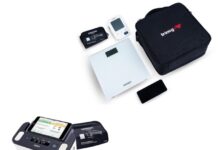New Delhi, April 14, 2017: San Diego–based biotech Neurocrine Biosciences Inc. just got the first U.S. drug approved for adults with the neurological disorder tardive dyskinesia.
But those with the disorder — involuntary body movements that are a side effect of antipsychotic medications — will have to wait to find out how much the drug will cost. And it’s part of a larger trend among drug makers to tamp down backlash over high prices that could then hit their stock price.
Neurocrine Biosciences NBIX+3.07% is waiting until sales representatives for the drug are sent out next month, President and Chief Operating Officer David-Alexandre Gros said on Tuesday, so the company can “announce pricing in an environment where we can articulate the value to our stakeholders.”
But previous guidance on price from Neurocrine Biosciences, and the prices set by competitors such as Teva TEVA-0.19% , suggest that Ingrezza will be priced between $20,000 and $60,000 a year, according to Wall Street analysts.
The list price will probably come in at the high end of that range, or around $60,000 a year, said Leerink analyst Paul Matteis. After the pharmaceutical negotiations that typically result in big discounts off the list price, Ingrezza might have a net cost of $45,000-a-year, he said.
In stalling the release of Ingrezza’s price, Neurocrine Biosciences is part of an emerging trend among pharmaceutical manufacturers. Besieged by bad press about high prices, drug makers have decided to wait a week or a month after a new drug’s approval to release its cost.
Drug makers already know what the price will be, Brad Loncar, CEO of Loncar Investments, told MarketWatch: “They’ve literally been obsessing about it for an entire year. They’re not coming up with the price today, by any means.”
Late last year, Biogen BIIB+1.1% and Ionis Pharmaceuticals Inc. IONS+7.42% didn’t release the price of their spinal muscular-atrophy drug Spinraza on Dec. 23, the day it was approved, which Biogen said is company policy for all drugs. The company confirmed to news outlets on Dec. 28 that the drug would cost up to $750,000 in the first year, then $375,000 in later years.
Last month, Tesaro Inc. said it would wait until late April to announce the price of its ovarian-cancer drug Zejula. The drug will likely cost $13,700 or more a month, Wedbush analyst David Nierengarten said.
For its part, Neurocrine Biosciences said it wants to make sure patients can get the drug.
It is pricing the drugs’ two dose strengths “essentially the same, so that patients and physicians can decide together what the best dose is without needing to worry about a significant difference in price,” Gros said.
Questioned about Ingrezza’s price during a company call Wednesday evening, Gros referred to Teva’s Austedo, which treats chorea, the writhing movements experienced by most people with Huntington’s disease. The drug, which might also be used in tardive dyskinesia, is expected to cost about $60,000 a year.
“And looking at that and at that range, we intend to be competitively priced,” Gros said.
Neurocrine Biosciences shares closed Wednesday at $53.19, having risen 3% on the day. Shares have surged more than 23% over the last three months, compared with a 3.5% rise in the S&P 500 SPX-0.68%
Corporate Comm India (CCI Newswire)























